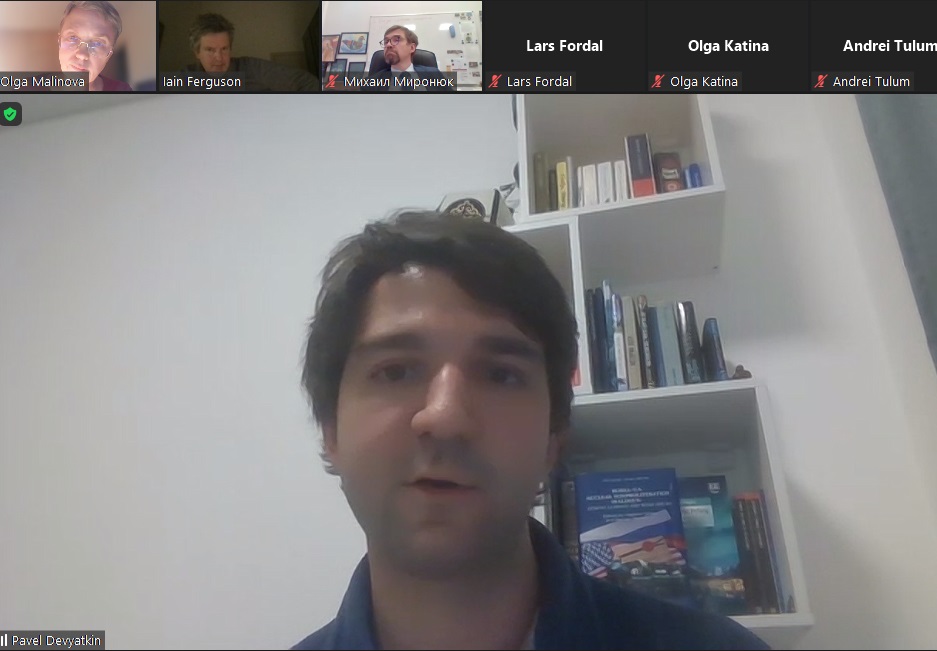Девяткин Павел представил доклад, посвящённый Арктической стратегии России

Pavel Devyatkin, 3rd year PhD Student, presented an extract from his dissertation, which studies the logic of Russia’s Arctic Strategy vis-a-vis cooperation. The research focuses on the period from when the strategy was first formulated in the wake of the Russian military intervention in Georgia (August 2008) until the moment the most fundamental international goal of this strategy – Russia’s cooperation with the other Arctic states within the framework of the Arctic Council – was publicly disavowed in the update of Russia’s official Arctic strategy in March 2023..
Through a method of rhetoric-based, historical case study, the study discloses conclusions about Russia’s troubled relationship with the Arctic Council. The foremost contribution of this dissertation to the literature is that this research moves beyond the rigid state-centric study of Arctic security studies and adopts an agency-centric perspective that distinguishes between Russian leaders’ approaches to Arctic security and cooperation. Most studies make a minimal distinction between the Arctic policy of Medvedev and Putin. In this dissertation, and in a recently published article<https://www.tandfonline.com/doi/full/10.1080/2154896X.2023.2258658>, Pavel Devyatkin highlights the modernization, multilateralism, and commitment to “mutually beneficial cooperation” supported by Medvedev and the pessimism, defensiveness, and limited cooperation (“the Arctic territory of dialogue”) invoked by Putin.
Pavel Devyatkin received helpful advice from professors including Olga Malinova, Mikhail Mironyuk, and Iain Ferguson, as well as questions from his Ph.D. candidate colleagues, about the need to systematize the methodological introduction, how the research fills a gap in the existing literature, and the need to question basic assumptions of the research design.


